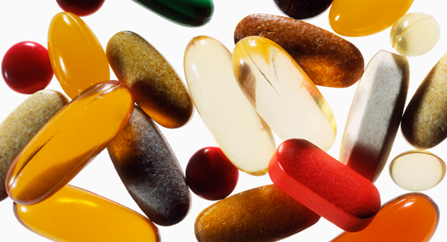By Christina McAninch

A (not so) fun fact: everything is regulated…except the supplement industry.
In 1905, muckraker Upton Sinclair published The Jungle, an exposé on the horrors of the American meatpacking industry. This harrowing book depicted working-class poverty, harsh working conditions, and food handling practices grotesque enough to make everyday Americans queasy. The following year, The 1906 Food and Drugs Act was passed to protect consumers from unsafe, uninspected meat and mislabeled food and drugs. It was a start but wholly inadequate to protect consumers. To illustrate this fact: non-prescription medicine was still allowed to contain cocaine or heroin, as long as it was on the label.
Tragedy inevitably struck in the form of The 1937 Elixir Sulfanilamide Incident. Sulfanilamide, an antibiotic used to treat streptococcal infections, had been available in tablet and powder form. In response to consumer demand, the S.E. Massengill Company developed a raspberry-flavored liquid form of sulfanilamide dissolved in diethylene glycol – a deadly poison used in anti-freeze. Sadly, there were no laws mandating drug companies to perform safety studies, and, without the requirement, none were performed in this case. Over a hundred people died, including children. Effective government regulation regarding the sale of drugs was long overdue, and finally, on March 5, 1938, the Food, Drug, and Cosmetic Act was passed.
After the Food, Drug, and Cosmetic Act, drug manufacturers were now required to submit evidence of their products’ safety and efficacy. Facilities which manufactured and processed food, drugs, medical devices, cosmetics, and tobacco products would be subjected to regular inspections. Furthermore, the FDA now had the power to recall unsafe products, regulate advertising, and regulate labeling.
But what about vitamins and supplements? Well, they play by a different set of rules. Under the Dietary Supplement Health and Education Act of 1994, the FDA only has the power to take action after the product gets to market. Consequently, misbranded, adulterated, worthless, potentially dangerous pills are winding up in people’s medicine cabinets.
Here are some red flags to look out for when shopping for supplements (List modified from: How to Spot Health Fraud | FDA):
1. Personal testimonials and celebrity endorsements. Does this sound familiar? “I’ve been using this magic pill for five weeks and have lost fifteen pounds.” “This patented blend of vitamins, minerals, and herbs has made me look ten years younger.” Unlike rigorous scientific studies published in reputable journals, testimonials are hard to scrutinize. Maybe they were secretly dieting and exercising…or getting work done. (Remember Brooke Windham from Legally Blonde?)

2. One Pill for Every Ill. In the 2005 Disney movie Kronk’s New Groove, Yzma convinces her former henchman Kronk to peddle her “youth potion” to his friends at the Flickering Embers Home for Seniors. “It’s finally arrived. The cure for everything that ails you. Yzma’s Young and Beautiful!” Within seconds of guzzling slime from a fancy bottle, elbows stop creaking, pounds (don’t) melt away, hair (doesn’t) grow back, and stamina skyrockets.
If a product claims to treat conditions that are unrelated to each other, or conditions broadly known to be otherwise untreatable and incurable, it’s definitely snake oil.

3. There is no evidence to support the product’s efficacy. Saw palmetto doesn’t shrink prostates.1 Garcinia cambogia does not make you lose weight,2 but, unfortunately, it CAN cause acute liver injury.3 Garlic, while it tastes amazing, doesn’t lower LDL cholesterol – whether it’s raw, powdered, or aged4 – and, therefore, garlic consumption shouldn’t replace life-saving medication. These examples show how easy it is to ignore the mandatory, ubiquitous, and inconspicuous FDA disclaimer:

4. Ambiguous promises. Have you ever seen “slimming tea”? Surely that’s a magic, high-quality metabolism booster and not just an overpriced laxative. A diet pill might promise “rapid weight loss,” but neglect to mention the lack of permanent results. Ambiguity is the ultimate legal loophole. The only thing slimming down is your bank account.

5. “It’s all-natural.” If a product is labeled as “all-natural,” that simply means that nothing artificial (i.e. food coloring) has been added to it – but it can still be harmful. Synthetic products are made in a lab. Regardless of origin, all foods, drugs, and supplements consist of chemicals. It’s important to be aware that “natural” is not necessarily synonymous with “good,” and “synthetic” does not equal “poison.” Hemlock was used to execute Socrates, and that, after all, was all-natural. In contrast, synthetic fertilizer is an essential part of agriculture that has been pivotal in scaling up crop production to support Earth’s population of eight billion hungry residents.

Not all supplements are bad. Folic acid supplementation before and during pregnancy significantly reduces the risk of neural tube defects.5 Prophylactic administration of vitamin K at birth can prevent severe bleeding associated with vitamin K deficiency.6 These effects have been rigorously scientifically demonstrated. Supplements play an essential role in nutrition and medicine and, like food and drugs, should be regulated so that consumers are protected from unsafe, contaminated, and ineffective products. Sadly, many supplements on the market today will give you, at best, very expensive urine.
Recommended Reading
Do You Believe in Magic? Vitamins, Supplements, and All Things Natural: A Look Behind the Curtain (2013) by Paul Offit
TL; DR
- The supplement industry is unregulated
- Supplements can be misbranded, adulterated, or ineffective
- Red flags: testimonials, cure-alls, lack of evidence, ambiguous promises, and the “all-natural” label
Reference
1. Bent S, Kane C, Shinohara K, et al. Saw palmetto for benign prostatic hyperplasia. N Engl J Med 2006;354:557-66.
2. Heymsfield SB, Allison DB, Vasselli JR, et al. Garcinia cambogia (hydroxycitric acid) as a potential antiobesity agent: a randomized controlled trial. JAMA 1998;280:1596-600.
3. Calaquian LL, Yau I. Garcinia cambogia-A Supplement-Related Liver Injury. Cureus 2022;14:e22225.
4. Gardner CD, Lawson LD, Block E, et al. Effect of raw garlic vs commercial garlic supplements on plasma lipid concentrations in adults with moderate hypercholesterolemia: a randomized clinical trial. Arch Intern Med 2007;167:346-53.
5. Viswanathan M, Urrutia RP, Hudson KN, et al. Folic Acid Supplementation to Prevent Neural Tube Defects: Updated Evidence Report and Systematic Review for the US Preventive Services Task Force. JAMA 2023;330:460-466.
6. Jullien S. Vitamin K prophylaxis in newborns. BMC Pediatr 2021;21:350.
Pingback: Choosing Legal Supplements: A Guide for Consumers